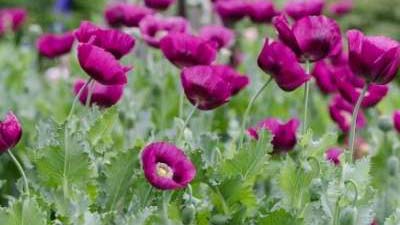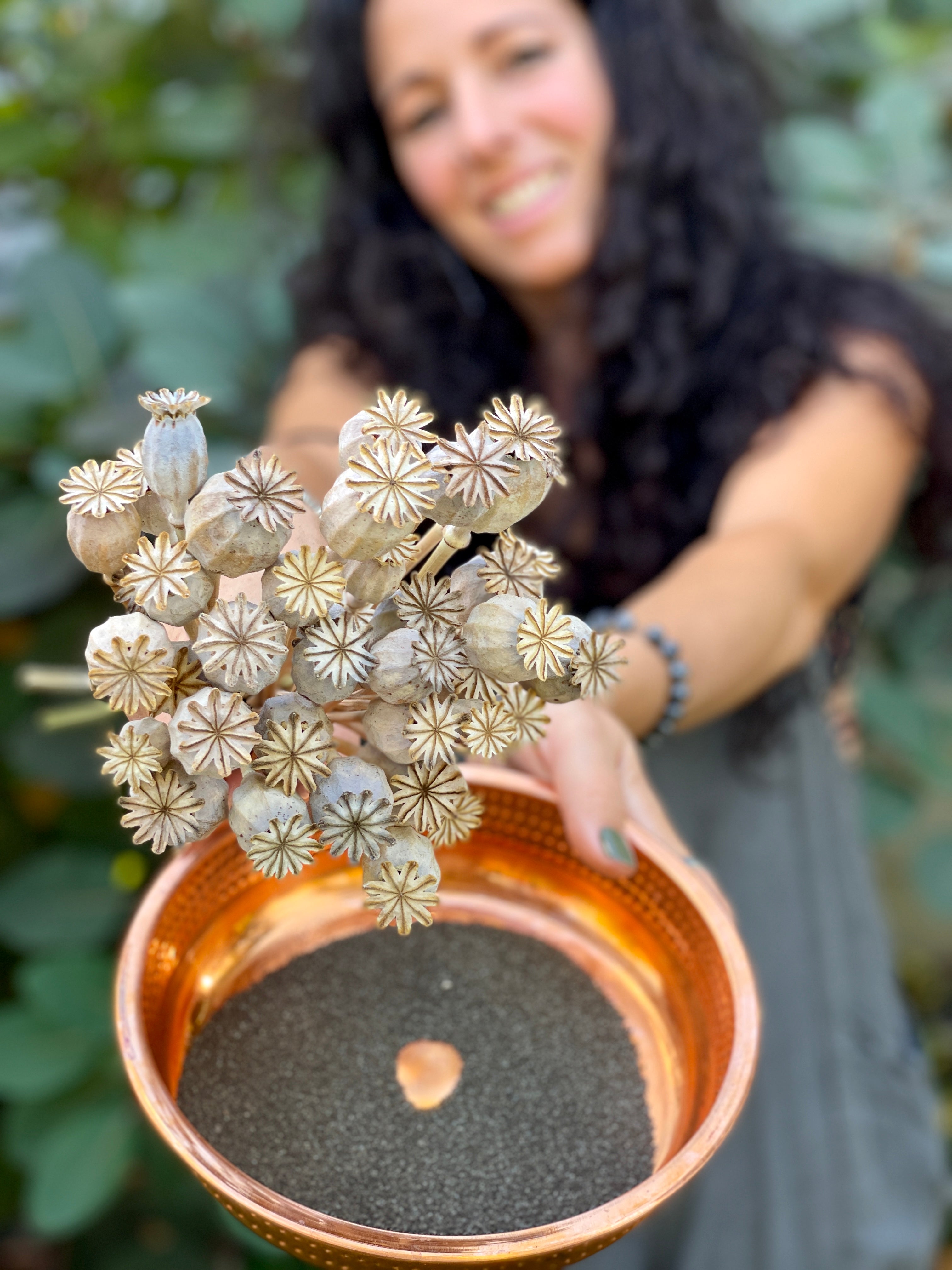Are you ready to grow beautiful poppies but not sure where to start? Learning how to germinate poppy seeds is easier than you might think, and it’s the first step to seeing those vibrant flowers bloom in your garden.
Whether you’re a beginner or have tried before without success, this guide will help you unlock the secrets to getting your poppy seeds to sprout quickly and healthily. Keep reading, and you’ll discover simple tips that make all the difference in turning tiny seeds into stunning blooms you’ll be proud of.

Credit: www.youtube.com
Choosing The Right Poppy Seeds
Choosing the right poppy seeds is the first step to a healthy garden. The type and quality of seeds affect how well your plants grow. Picking seeds suited for your climate and soil helps you get better results.
Different poppy varieties offer various colors and sizes. Selecting good seeds saves time and effort during germination. Understanding seed quality is key to starting strong.
Popular Poppy Varieties
Common poppy types include the Oriental, Iceland, and California poppies. Oriental poppies have large, bright flowers. Iceland poppies are known for their delicate petals. California poppies are hardy and bright orange. Choose a variety that fits your garden style and climate.
Seed Quality Tips
Always buy fresh seeds from a trusted source. Check the packaging date to ensure freshness. Avoid seeds that look broken or damaged. Store seeds in a cool, dry place before planting. Good seed quality improves germination rates and plant health.
Preparing The Soil
Preparing the soil is the first step to growing healthy poppy plants. Good soil helps seeds sprout quickly. It also gives young plants the nutrients they need. Before planting, check the soil carefully. Make sure it fits poppy seeds’ needs. A little work now saves trouble later.
Soil Type And Ph
Poppy seeds grow best in loose, sandy soil. This type lets roots spread easily. Clay soil holds too much water. It can stop seeds from sprouting. The soil’s pH should be between 6.0 and 7.5. This range means the soil is slightly acidic to neutral. Test your soil with a simple kit. Adjust pH by adding lime to raise it or sulfur to lower it.
Improving Drainage
Good drainage stops water from pooling around seeds. Waterlogged soil can cause seeds to rot. To improve drainage, mix sand or small gravel into the soil. Raised beds also help water drain away quickly. Avoid heavy watering right after planting. Let the soil dry a little between waterings. This keeps seeds safe and ready to sprout.
Seed Treatment Techniques
Seed treatment helps poppy seeds sprout faster and grow better. It prepares the seeds for planting by making their outer shell softer. This process improves water absorption and encourages roots to develop. Two common seed treatment methods work well for poppy seeds.
Cold Stratification
Cold stratification mimics winter conditions. Place poppy seeds in a damp paper towel. Put the towel in a plastic bag. Store the bag in the refrigerator for 2 to 4 weeks. This cold period breaks seed dormancy. It signals the seed to start growing once planted. After stratification, plant the seeds in soil. This method increases germination rates significantly.
Soaking Seeds
Soaking softens the hard seed coat quickly. Put poppy seeds in a bowl of warm water. Let them soak for 12 to 24 hours. Do not soak longer to avoid seed damage. After soaking, drain the water. Plant the seeds immediately in moist soil. Soaking helps seeds absorb water fast. This speeds up germination and improves seedling growth.

Credit: extension.usu.edu
Sowing The Seeds
Sowing poppy seeds is the first step to a beautiful garden full of colorful blooms. It is important to plant them carefully for good growth. Seeds need the right conditions to start sprouting quickly and healthily. Follow simple tips to give your poppy seeds the best start.
Planting poppy seeds is easy if you know the right time and depth. Proper spacing helps the plants grow strong without crowding. Careful planting leads to better flowers and a healthy garden.
Best Time To Plant
Plant poppy seeds in early spring or late fall. These seasons offer cool soil and enough moisture. Cool temperatures help seeds sprout faster. Avoid hot summer days as they can dry out seeds quickly. Planting early gives plants time to grow before heat arrives.
Planting Depth And Spacing
Scatter poppy seeds lightly on the soil surface. Do not bury them deep; just press gently into the soil. Poppy seeds need light to germinate well. Plant seeds about 1 inch apart to give space for growth. Thin seedlings later to 6 to 12 inches apart. This spacing allows air and sunlight to reach each plant.
Watering And Moisture Control
Watering and moisture control play a key role in germinating poppy seeds successfully. These tiny seeds need just the right amount of water to sprout well. Too little water can dry them out. Too much water can cause them to rot. Keeping the soil moist but not soggy helps seeds grow strong and healthy.
Watering Frequency
Water the soil gently right after planting the seeds. Keep the surface damp every day until sprouts appear. Check the soil daily by touching it with your finger. If the top feels dry, add water. The goal is to keep the soil moist, not wet. Once seedlings grow, reduce watering to every few days. This helps roots develop deep and strong.
Avoiding Overwatering
Overwatering can harm poppy seeds and seedlings. Wet soil blocks air from reaching the roots. This causes seeds to rot or mold to grow. Use a spray bottle or a watering can with a fine spout. Water lightly and slowly to avoid flooding the soil. Make sure pots have drainage holes to let excess water escape. Allow the top layer to dry out slightly before watering again.
Light And Temperature Needs
Understanding the light and temperature needs of poppy seeds is key for successful germination. These tiny seeds require specific conditions to sprout strong and healthy. Providing the right environment helps speed up the process and improves growth.
Ideal Light Conditions
Poppy seeds need plenty of light to germinate well. Bright, indirect sunlight works best. Avoid placing seeds in deep shade or direct, harsh sunlight. A south-facing window or a spot with filtered light is ideal. Light triggers the seeds to start growing and keeps seedlings healthy.
Temperature Range For Germination
The perfect temperature for poppy seed germination is between 55°F and 65°F (13°C to 18°C). Cooler temperatures slow down growth, while higher heat can damage the seeds. Keep soil temperature steady in this range for faster sprouting. A cool room or shaded outdoor area can maintain these conditions well.
Monitoring Seedling Growth
Watching your poppy seedlings grow is an exciting part of gardening. Careful monitoring helps ensure healthy plants. It also helps catch problems early. You can take simple actions to support growth. Knowing what to expect makes the process less stressful.
Signs Of Successful Germination
Green shoots appear above the soil first. They look like tiny leaves pushing out. The soil may crack gently as seeds sprout. Seedlings grow quickly in the first two weeks. Leaves start to spread and turn a healthy green. Sturdy stems show the plant is strong. Consistent growth means good root development below.
Common Seedling Problems
Yellow leaves often mean too much water or poor light. Wilting seedlings can signal underwatering or root damage. Leggy growth happens when plants stretch for light. This makes stems weak and thin. Mold on soil indicates too much moisture. Pests like aphids might appear on young leaves. Early action saves seedlings from serious damage.
Transplanting And Care
Transplanting poppy seedlings is a key step to grow healthy plants. It helps them get more space and better soil nutrients. Proper care after transplanting supports strong growth and vibrant blooms.
When To Transplant
Wait until seedlings have two or three true leaves. This usually takes about two to three weeks after germination. Choose a cool, cloudy day for transplanting. It reduces stress on the young plants. Handle seedlings gently to avoid damage to roots. Space them at least 6 to 8 inches apart. This gives room to grow and good air circulation.
Ongoing Maintenance Tips
Water poppies regularly but avoid soggy soil. Keep the soil moist but well-drained. Mulch around plants to keep soil cool and moist. Remove weeds to prevent competition for nutrients. Fertilize lightly with balanced fertilizer every four to six weeks. Watch for pests like aphids and treat quickly. Deadhead spent flowers to encourage more blooms.

Credit: sacredelements.world
Frequently Asked Questions
How Long Does It Take For Poppy Seeds To Germinate?
Poppy seeds typically germinate within 7 to 14 days. They need cool soil and consistent moisture for best results. Avoid overwatering, as it can cause seed rot. Early germination improves with light exposure and proper seed-to-soil contact.
What Is The Best Soil For Germinating Poppy Seeds?
Well-draining, sandy or loamy soil works best for poppy seed germination. The soil should be slightly acidic to neutral, with a pH between 6. 0 and 7. 5. Good drainage prevents waterlogging and root rot, promoting healthy seedling growth.
Should Poppy Seeds Be Soaked Before Planting?
Soaking poppy seeds is not necessary for germination. However, a light soak for a few hours can speed up the process. Most gardeners prefer direct sowing on the soil surface for better light exposure, which aids germination.
How Much Sunlight Do Poppy Seeds Need To Germinate?
Poppy seeds require full sunlight for successful germination. They need at least 6 hours of direct sunlight daily. Light helps trigger the germination process and promotes strong, healthy seedlings.
Conclusion
Growing poppies starts with careful seed germination. Keep the soil moist but not wet. Provide plenty of light and warmth for best results. Thin seedlings gently to avoid crowding. Watch for healthy, green sprouts as a good sign. Patience matters; seeds take time to grow.
Soon, you will enjoy beautiful, blooming poppies. Follow these steps, and success will come. Happy gardening!

